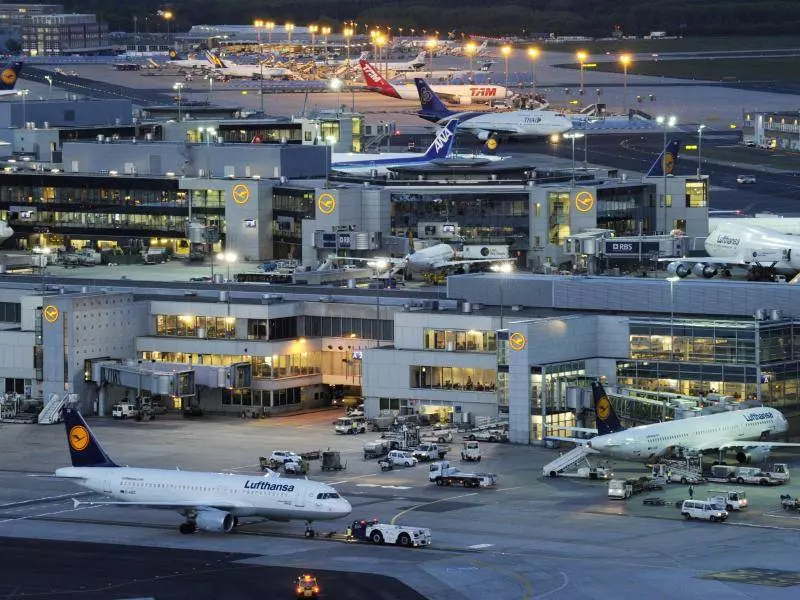
Germany airports
German Airports: A Comprehensive Introduction.
As an experienced travel journalist, I am happy to give you a detailed insight into the world of German airports. In this series of articles, we will take a closer look at Germany's largest airports, their transport connections, services and flight connections. In addition, you will receive valuable tips for the perfect travel preparation at the German airport.
The largest airports in Germany
Germany has a well-developed airport network that provides travelers from all over the world with numerous hubs and regional airports. The largest airports in the country include:
- Frankfurt Airport (FRA): As Germany's largest airport and one of Europe's busiest hubs, Frankfurt offers excellent connections to national and international destinations.
- Munich Airport (MUC): Germany's second-largest airport is an important hub for intercontinental flights and feeder traffic to southern Europe.
- Berlin Brandenburg Airport (BER): After years of delay, the new capital airport opened in 2020 and replaces the previous Berlin airports Tegel and Schönefeld.
- Dusseldorf Airport (DUS): As one of the largest airports in North Rhine-Westphalia, Dusseldorf is an important transfer point for travellers to the Benelux countries and the UK.
- Hamburg Airport (HAM): The airport in the Hanseatic city is the most important hub in northern Germany and offers numerous connections throughout Europe.
Transport connections to German airports
German airports have excellent transport connections, which allows travelers to travel comfortably and efficiently. Options include:
- Public transport: All major airports are connected to the rail network and can be reached by S-Bahn, regional express or ICE.
- Buses and shuttles: Numerous bus lines and shuttle services connect the airports with surrounding cities and train stations.
- Individual car traffic: The airports can be reached via well-developed motorways and access roads. Parking is available at all locations.
Services at German airports
In addition to excellent transport connections, German airports offer their guests a wide range of services:
- Gastronomy and retail: At all airports, travellers will find a variety of restaurants, cafés, shops and duty-free stores.
- Lounges and VIP services: Exclusive lounges with comfortable seating, refreshments and workstations are available for business and first class passengers as well as frequent flyers.
- Travel agencies and information centres: Competent contact persons in the travel agencies and information centres advise travellers on all questions relating to the airport and onward journey.
- Special services: Additional services include luggage storage, children's playgrounds, massages and medical care.
Flight connections from German airports
German airports are excellently integrated into the international air transport network and offer travellers an extensive route network:
- Domestic flights: All major airports are connected to each other as well as to regional locations such as Dresden, Nuremberg or Rostock.
- European destinations: Numerous direct flights lead to the most important metropolises throughout Europe, from Lisbon to Moscow.
- Intercontinental connections: Germany's largest airports are hubs for long-haul flights to North America, Asia, Africa and Australia.
Airports as an economic factor in Germany
The importance of German airports goes far beyond their function as travel hubs. They are also important economic factors and employers in their regions:
- Jobs: Frankfurt Airport alone employs over 80,000 people, while the airports in Munich, Düsseldorf and Hamburg each have over 20,000 employees.
- Value creation: Airports contribute billions in revenue and tax revenue to the economy as a whole every year.
- Infrastructure and tourism: As transport hubs, airports promote the development of roads, railways and hotel capacities in their vicinity.
Tips for preparing for travel at the German airport
To ensure that your airport experience in Germany runs smoothly, I recommend the following preparation steps:
- Find out about your airport in advance: familiarise yourself with the infrastructure, terminals, parking spaces and transport connections.
- Allow enough lead time: allow at least 2 hours for check-in, security and boarding process.
- Use digital services: Check in online, book parking spaces or lounges in advance and download the Airport app.
- Pack your hand luggage carefully: Observe the regulations on permitted liquids and items.
- Stay up to date: Find out about possible delays or schedule changes.
If you need more information about Germany's airports or tips for your travel preparation, don't hesitate to contact me. I am happy to be at your disposal with my expertise and look forward to providing you with the perfect airport stay in Germany.








